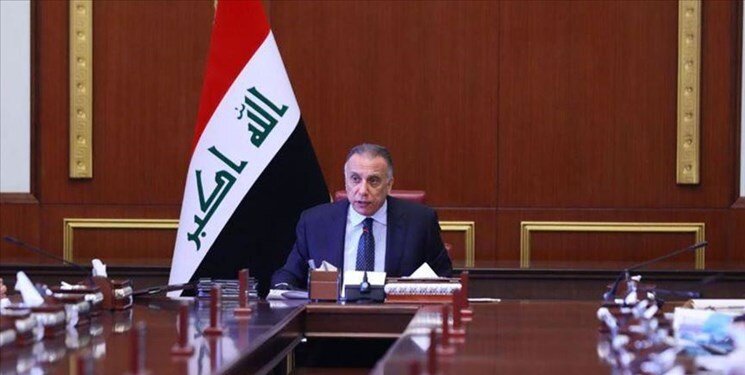Dr. Seyed Razi Emadi in an interview with the website of the Strategic Council on Foreign Relations, referring to the first round of strategic talks between the United States and Iraq, which took place at the request of the American side, noted: There is now a president in power in the United States who has no knowledge of the rules of the political game, and his political behavior does not conform to the standards of 21st century behavior. So he shows behaviors that are costly for Americans.
He described the assassination of Sardar Qassem Soleimani and Abu Mahdi al-Mohandes and his associates as one of the irrational and unsound decisions of the US President, adding: “After this crime, the ground for the presence of American forces in Iraq became extremely dangerous. The Iraqi parliament passed the first step by approving the withdrawal of US troops. Although there has been and continues to be much controversy in the Iraqi parliament and among political groups, the passage of such a plan meant a new development against the US military in West Asia, especially in Iraq, which is a new chapter in opposition to the US presence in the region and Iraq.”
Referring to the large-scale protests in Iraq on January 24 demanding US troops withdrawal, the university professor said these two developments were political events, but then we see that the security presence of the US military in Iraq is being threatened so that daily attacks on smaller US bases are carried out, forcing them to evacuate smaller bases, hand them over to Iraqis, and move to larger bases.
Shaky Situation of American Military in Iraq
Emadi described the situation in Iraq as “shaky” and said that a significant number of political groups and the Iraqi people believed that the Americans had effectively violated Iraq’s sovereignty with the January 3 assassination of leaders of the Resistance. “The 21st century is not the time for a country to exercise such a behavioral pattern on another country such as Iraq, which was once a regional power. Therefore, the new situation of its troops in Iraq was the main reason that forced the Americans to demand negotiations.
Explaining other reasons for holding strategic talks between Iraq and the United States, the West Asian affairs analyst said: “The Americans are trying to bypass a parliamentary resolution on the withdrawal of their troops from Iraq or to reduce political pressure on them. Meanwhile, they offered to negotiate, knowing that the Iraqi government was not in a good position.”
Talks Idea at the Height of Iraqi Government’s Problems
He explained: The government in Iraq is facing a widespread outbreak of corona; The spread of the disease has exacerbated economic problems, as well as growing security threats inside Iraq. On the one hand, there are threats from the remnants of ISIS, and on the other hand, with the summer approaching, there is a possibility of resumption of protests due to the heat and energy shortages.
Emadi said that in such a situation, the Americans have proposed June 10 for holding the talks. The date marks the anniversary of the occupation of Iraq by ISIS, he said, adding that they were looking for some kind of reminder of the threat posed by ISIS to the Iraqis and offered to hold talks that many in Iraq are skeptical about it. For example, the delegation chosen by the Iraqis is not a team to bargain for the withdrawal of US troops, as the negotiators have American, British and French citizenship. The delegation cannot be expected to bargain for the withdrawal of US troops.
“It seems to me that what is happening is not a negotiation but a kind of a deal,” he said. “My impression is that the Americans are trying to give Mustafa al-Kazemi some concession. While agreeing to reduce their military presence in Iraq, the Americans will remain inside Iraq will get guarantees for the security and safety of the US military and embassy. On the other hand, Mr. Kazemi will boast that the reduction of troops is the result of the negotiations, and in the long run they may leave Iraq. So that could be a kind of American game for Mustafa Kazemi.”
“The United States is trying to put pressure on the Iraqi government in these negotiations,” Emadi said. Because they claim to have overthrown the Ba’athist regime and helped fight ISIS. In the current situation, according to some sources, the Americans are taking about one million barrels of Iraqi oil. The Americans are taking advantage of this situation and the economic challenges of the Iraqi government and the fact that Kazemi needs to act in such a way that he can win the next Iraqi elections, as a pressure lever and rule out withdrawal of the US military and just suffice to a reduction in their number.
Noting that a cut in the number of Iraqi troops in Iraq is in the interest of the Americans in terms of costs, the West Asia affairs expert said: “Whether the American troops leave Iraq or reduce their numbers is positive,” he said. Even if they do not leave Iraq, the least achievement of the talks would be to reduce their military presence in Iraq.
He said: “Iran’s emphasis has always been that it does not and will not interfere in the internal affairs of Iraq. Therefore, as for the talks, Iran has stated that this negotiation is related to the internal affairs of Iraq, and that the Iraqis themselves have the right to decide as they wish; But in general, the negotiations cannot have negative consequences for Iran; Because Iran considers Iraq’s security to be its most important goal in the first place; Security that will preserve the territorial integrity and geography of this country.”










0 Comments